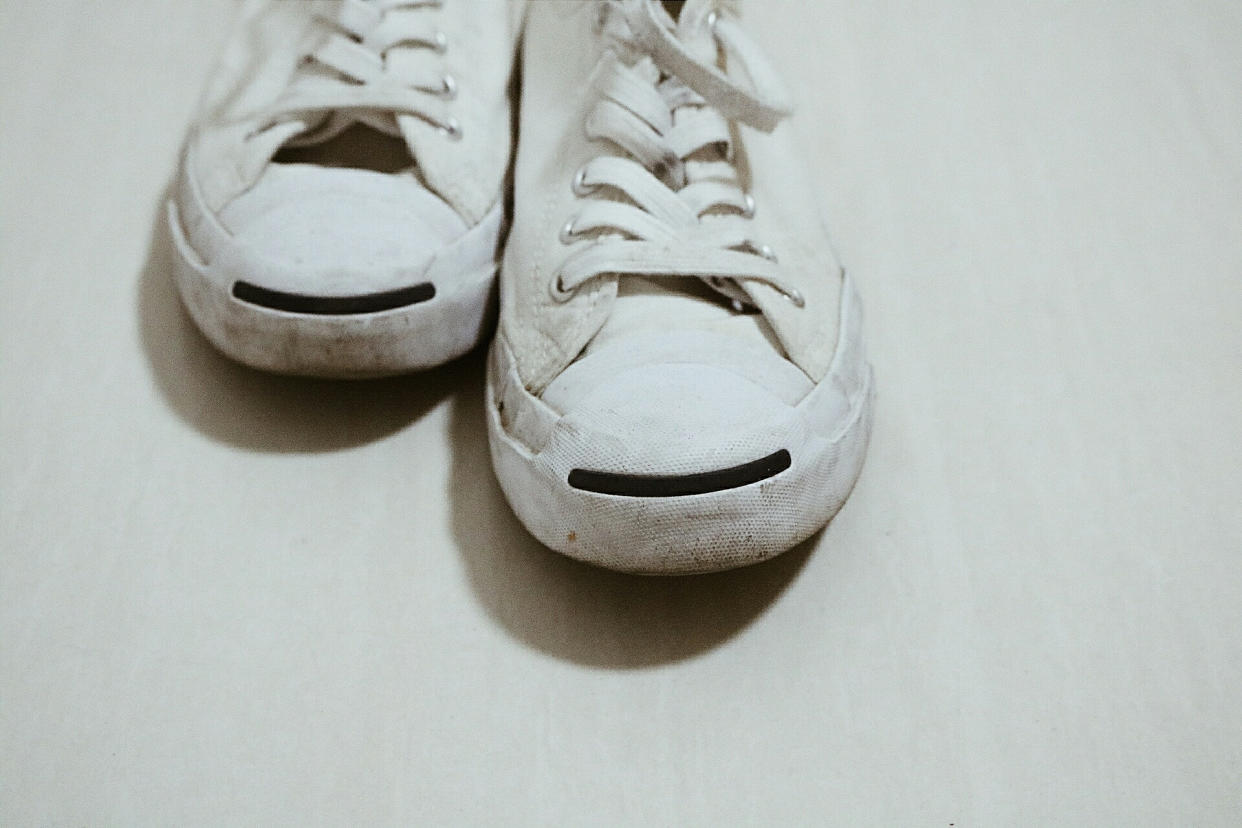D.C. restaurant revokes dress code after claims of racial discrimination

A restaurant has fired a bouncer and reversed its dress code policy after allegations that a customer was racially discriminated against for wearing sneakers.
Earlier this week, Ayyaz Rashid the managing partner of El Centro D.F., a Washington, D.C., restaurant told the Root that the bouncer who tried to prevent Brian Gordon, a black man, from entering because of his leather Converse high-tops had been terminated.
“The security in question has been relieved of his duties and will no longer be working at the venue,” Rashid told the publication. “Furthermore, there will be no dress code applied anymore at all. Not to stop there, I am scheduling a training workshop for the rest of the team to make sure such incidents may never happen again.”
According to the Root, which broke the story, Gordon was initially refused entry to the restaurant because the bouncer objected to his footwear.
“They’re not like ratty, dirty sneakers,” Gordon later told the Washington Post. “They’re brand new; they’re leather. They were clean, fresh, white. It’s not like I showed up in five-year-old Chucks.”
Outside, Gordon texted his friend Yesha Callahan, a deputy managing editor at the Root, who was inside the venue and who noted a detail about the other patrons. “…right before my very own eyes, was a group of white men wearing — you guessed it — sneakers,” she wrote. “Not only were the three white guys posted at the bar in sneakers, but there were also three other men on the dance floor wearing various styles of sneakers. Since it was still early in the night, there was a total of about nine people in the basement bar area, not including the bartenders, and it was pretty easy to assess everyone’s footwear.”
Callahan and her friends knew the bartender who intervened on Gordon’s behalf and he was ultimately allowed entry.
Restaurant and bar dress codes have long been perceived as discriminatory. In 2009, six black students from St. Louis accused the Original Mothers, a nightclub in Chicago, of discrimination after they were refused entry due to a “baggy jeans policy” despite white patrons who wore similar pants.
“Alarm bells went off in my mind automatically,” one of the men told NPR. “A lot of times, baggy-jeans policies are used, in my opinion, to reject a certain demographic, mostly black men, from being allowed entry into certain places.”
In May, the Bottled Blonde, a Chicago pizzeria, posted a sign listing banned clothing items such as Nike Air Max, camouflage, or long tees, evoking anger online for its “racist” and “classist” undertones.
And a Dallas bar called the Trophy Room is currently under a city investigation for refusing entry to three women of color wearing skirts, blouses, and heels, based on their so-called casual outfits. According to the Dallas Morning News, one of the women claimed “nonminorities” wearing T-shirts and sneakers were allowed inside.
“We knew then this was not about clothing,” said Traci Burst, one of the women, who recounted the incident on Facebook Live. “It was about the color of our skin.”
Business owners might say dress codes play up an atmosphere or promote a certain image. In 2016, when Town and Country asked John Winterman, a ma?tre d’ at New York City’s Daniel, whether dressing for dinner is important, he answered: “Absolutely. I break it down into self-respect and respect for others,” adding that people who dress well are better seated.
“If someone comes in making an effort and looking fabulous and glamorous and they know they’re in for a premium experience at a premium price, you give them a fabulous table in the middle of the room. And people react to that, when they see a crowd that’s well-dressed and beautiful and sparkling.”
And while fine dining has generally faded into hipper, Instagram-worthy experiences, many bars and restaurants still uphold wardrobe rules. “Sometimes dress codes have practical implications to avoid safety issues that customers aren’t always aware of, but it can be problematic when a banned look is associated with a marker of identity or a particular movement,” Vickie M. Mays, a professor of psychology at the University of California, Los Angeles, tells Yahoo Lifestyle. “Then what you’re saying is, ‘That look doesn’t fit.'”
She adds, “We need to ask, ‘What is the purpose of the rule and does it achieve the outcome that you fear?’ If an establishment is trying to prevent people from committing a crime, for example, banning baggy pants won’t achieve that.”
Gordon insists that he’s not opposed to a no-sneakers rule, “but if it’s not being applied universally, then it’s a problem.” He also received an apology from El Centro D.F. but he told the Post, “I don’t really have any interest in returning to a restaurant that clearly doesn’t want me or anyone who looks like me.”
Read more from Yahoo Lifestyle:
This school has a brilliant solution to avoid dress code violations
Eminem is still using the word ‘retarded’ — why that’s an issue
‘Riverdale’ accused of sexualizing teen girls for pole dance scene
Follow us on Instagram, Facebook, and Twitter for nonstop inspiration delivered fresh to your feed, every day.
